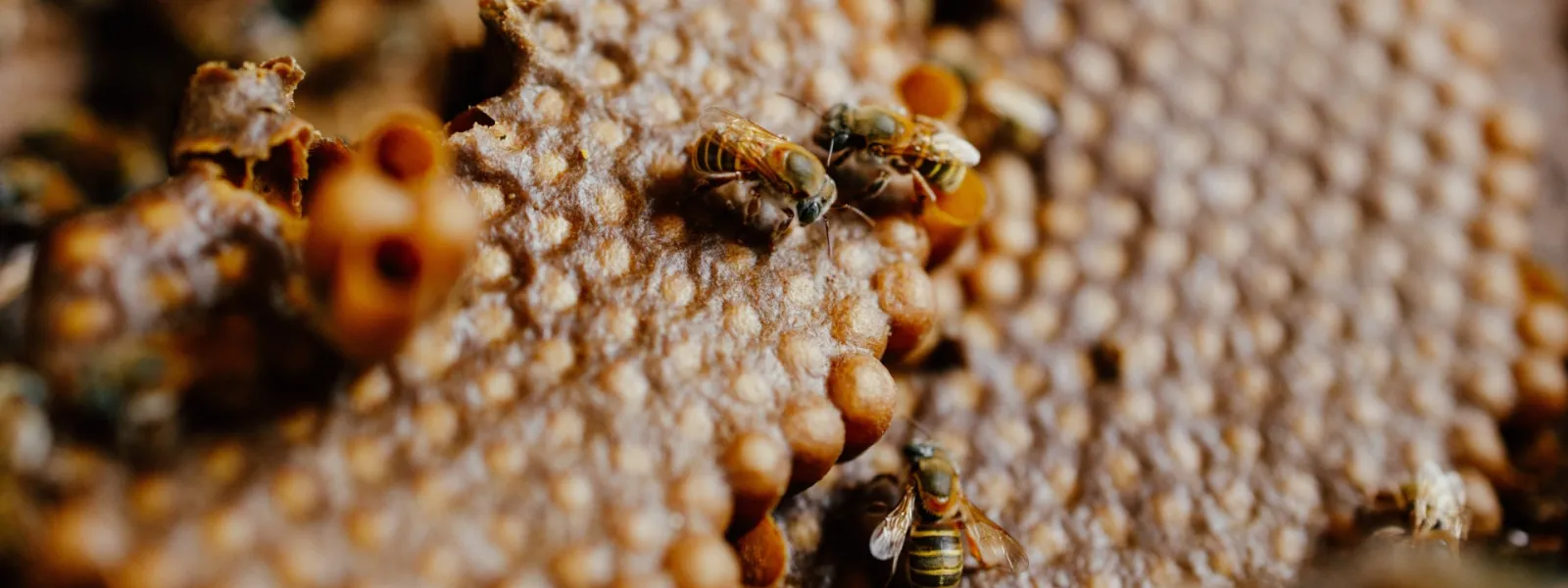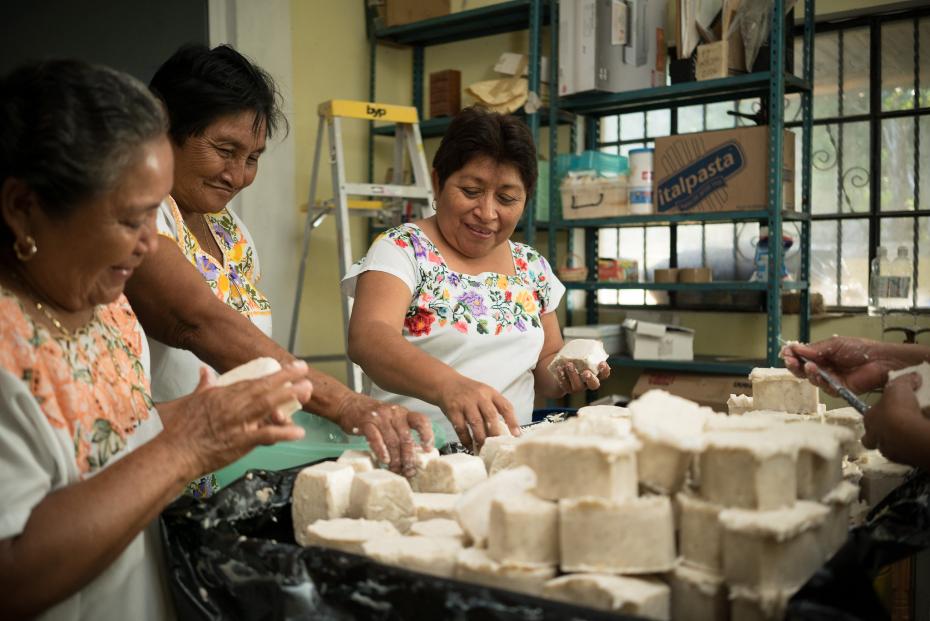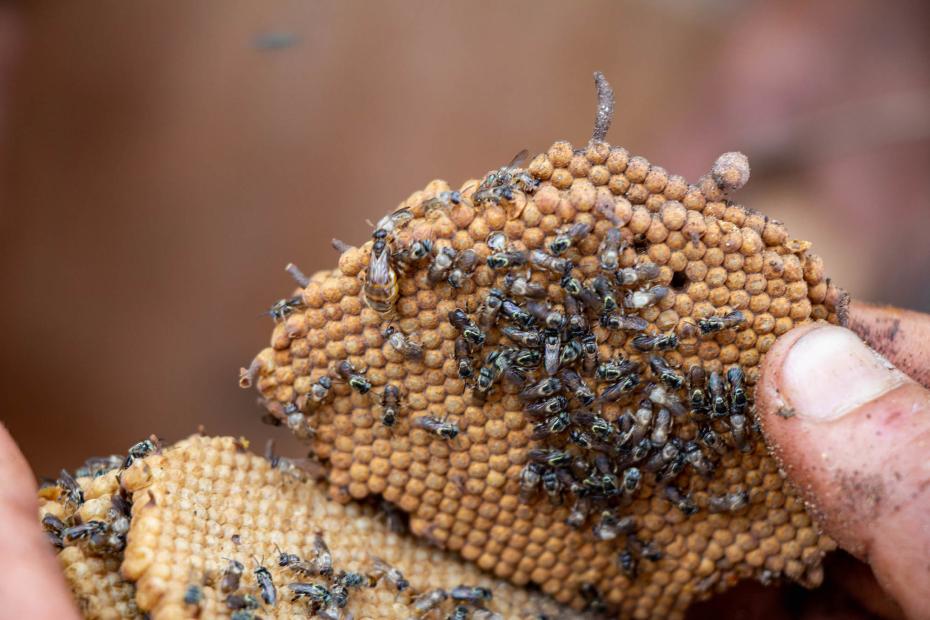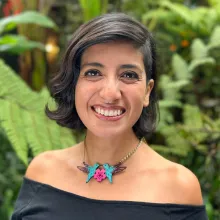
Native bees and indigenous peoples: an ancestral bond
Photo: Shutterstock.Did you know that there are bees native to our continent that have been part of the cosmovision and way of life of various indigenous peoples?
The native bees or Melipona beesbelong to the tribe of the Meliponini. They are known as "stingless bees" because they do not have a functional stinger, although they have other defense mechanisms, such as biting.
There are dozens of species of these bees found from Mexico to Argentina.
In some indigenous communities, native bees are considered spiritual and symbolic beings, but they are also valued for their essential functions in sustaining life: by pollinating crops, they are allies in food production; their honey, wax, and propolis have recognized nutritional and healing properties; and they maintain the balance of nature for the conservation of ecosystems.
As part of World Bee Day—celebrated every year on May 20 to raise awareness, promote and encourage actions to protect bees and other pollinators—we would like to highlight the work of some communities that honor and care for native bees in a variety of ways, and in doing so, care for and preserve their own cultures.

A work of mutual care
The breeding and use of melipona bees, native to the Americas, is an ancestral practice for several indigenous peoples. This activity, called meliponiculture, is part of their way of life and worldview.
The introduction of the domestic bee (Apis mellifera) from Europe drastically reduced this practice. However, many communities have preserved it, protecting native bees from extinction and ensuring biodiversity in their territories.
We have examples of this across the continent.

Guatemala
The warm forests of Alta Verapaz, Guatemala, are the preferred habitat of native bees and are home to the greatest diversity of bees in the country.
Their conservation is in the hands of Q'eqchi Mayan families and small producers who build technological hives or "bee houses."
Peru
Through her Sumak Kawsay initiative, Ysabel Calderón is promoting the conservation of native bees by restoring their habitat in Lambayeque, Peru.
Calderón has planted more than 1,000 trees in Lambayeque and increased the native bee population. This has also created jobs for a group of women in the region.
Argentina
In Argentina's Gran Chaco, Silvia Godoy and other small-scale honey producers are recovering native bee nests in sawmills that have been lost to forestry activities.
The colonies are carefully placed in boxes for better conservation and rational use of their honey.
Colombia
Yucuna women from the Mirití-Paraná region of Colombia are working to document the origins of native bees in their culture and their importance to the territory and the environment. They are doing this hand in hand with the wise grandmothers and grandfathers of the villages.
They collect stories, songs and drawings about bees.
MExico
About 20 years ago, Nahua families in Cuetzalan del Progreso, Mexico, began promoting meliponiculture as an ancestral practice that was being lost.
Today, honey harvesting benefits the families economically and allows them to protect their territory.
And in southeastern Mexico, the Colectivo de Comunidades Mayas de los Chenes has put native bees at the center of its fight against GMOs and agrotoxins.
The women's voice and the protection of meliponiculture, a traditional practice and their livelihood, have been key to defending their territory.
SOURCES
-S. Engel, M. et al. “Stingless bee classification and biology (Hymenoptera, Apidae): a review, with an updated key to genera and subgenera”, ZooKeys.
-Practical guide for the implementation of meliponiculture in the Colombian Amazon, Amazon Conservation Team/The Nature Conservancy, 2020.
-Importance of meliponiculture", General Directorate of Natural Resources and Biosecurity.
-"Native bees of Mexico. The importance of their conservation", Conacyt.
Mayela Sánchez García

Mayela Sánchez García is Mexican and AIDA's digital community specialist, working from Cholula, Mexico. She is a graduate in Journalism and Media Studies from the Instituto Tecnológico y de Estudios Superiores de Monterrey in Mexico. Mayela has significant experience as a journalist focused on social and human rights issues. She has worked in print and digital media, and has experience in podcast production.
